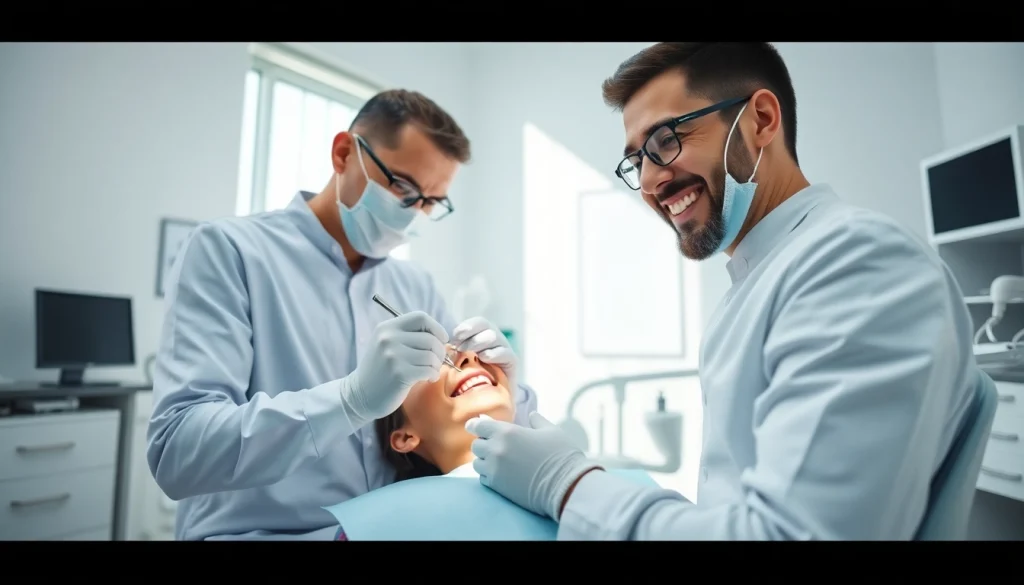The Importance of Regular Checkups
When it comes to maintaining good health, particularly dental health, regular checkups are essential. Dental checkups play a crucial role in preventing serious dental issues and maintaining optimal oral hygiene. At checkups, patients are encouraged to visit their dentist routinely to ensure their smile remains bright and healthy. Throughout this article, we’ll explore the significance of dental checkups, what to expect, and how to find the right dentist for your needs.
Understanding Dental Checkups
A dental checkup is a preventive service that allows your dentist to assess your oral health, identify any potential issues, and provide proactive care. During a checkup, your dentist will typically perform a thorough examination of your teeth, gums, and any other relevant areas, possibly including X-rays for a more in-depth view of your dental health.
The American Dental Association (ADA) recommends that adults visit the dentist at least once a year for a checkup, but many experts suggest that twice a year is ideal for most patients. The primary aim of these visits is prevention; they help catch issues like cavities, gum disease, and oral cancers in their early stages, which can significantly reduce the need for more extensive treatments later.
Benefits of Routine Dental Visits
Routine dental visits offer several benefits:
- Preventive Care: Regular checkups help identify dental issues before they escalate into serious concerns, saving time and money.
- Professional Cleaning: Regular visits allow for professional teeth cleaning that removes plaque and tartar buildup that brushing and flossing may miss.
- Early Detection: Dentists are trained to spot early signs of tooth decay and gum disease, leading to early intervention.
- Oral Cancer Screenings: During your visit, your dentist can perform screenings for oral cancer, an important part of preventive health care.
- Education: Checkups give you the opportunity to ask questions and gain valuable insights into maintaining oral health.
Common Myths About Checkups Debunked
Despite the clear benefits of dental checkups, several myths still discourage individuals from making regular appointments:
- Myth 1: “I don’t have any pain, so I don’t need a checkup.”
- Fact: Many dental issues are asymptomatic in their early stages and can develop with no obvious signs until they become severe.
- Myth 2: “Checkups are too expensive.”
- Fact: Preventive care is often much more cost-effective than treating advanced conditions that arise from neglect.
- Myth 3: “I can just make my own oral hygiene decisions.”
- Fact: Professional guidance is essential to effectively maintain and improve oral health.
Optimal Frequency for Dental Checkups
Recommended Checkup Schedule for Adults
For adults, the general recommendation is to schedule dental checkups every six months. However, certain individuals might benefit from a different frequency:
- More frequent visits: Those with ongoing dental issues, a history of gum disease, or specific health conditions like diabetes may require more regular monitoring.
- Less frequent visits: Those with excellent oral health may be able to stretch appointments to once a year.
Children’s Dental Checkup Frequency
Children typically require more frequent dental visits. The ADA recommends that children have their first dental checkup by their first birthday, with follow-up visits scheduled every six months. Early visits are vital as they set the foundation for lifelong dental habits.
Factors Influencing Your Checkup Needs
Several factors can influence how often you should have dental checkups:
- Aging: As we age, our oral health needs change, often requiring more regular visits.
- Medical Conditions: Conditions such as heart disease, diabetes, or asthma can impact oral health and necessitate more frequent dental evaluations.
- Medication: Some medications can affect saliva production and overall oral health, affecting the recommended frequency of checkups.
The Checkup Experience: What to Expect
Arriving for Your Appointment
Before your appointment, it’s essential to ensure that you have your insurance details ready, along with a list of any medications you are currently taking. Arrive a little early, allowing time to fill out any necessary paperwork or update your medical history.
Typical Procedures During a Checkup
During your dental checkup, you can expect the following procedures:
- Visual Examination: Your dentist will perform a thorough examination of your gums, teeth, and tongue.
- X-Rays: If necessary, X-rays will be taken to evaluate your bone health and spot dental issues not visible during the visual exam.
- Cleaning: A dental hygienist will clean your teeth, removing plaque and tartar, followed by polishing your teeth to help prevent future decay.
- Consultation: Your dentist will discuss findings, answer your questions, and recommend any necessary treatments.
Post-Checkup Recommendations
After your checkup, your dentist may provide personalized recommendations regarding your oral hygiene routine, dietary considerations, or necessary follow-up treatments. Implementing their advice is crucial for maintaining optimal dental health.
Recognizing Signs You Need a Checkup
Common Symptoms That Warrant Immediate Attention
There are several symptoms that indicate it may be time to schedule an appointment sooner than your routine checkup:
- Pain or sensitivity while chewing or biting.
- Gum issues, such as swelling, bleeding, or tenderness.
- Persistent bad breath despite regular brushing and flossing.
- Visible cavities or dark spots on your teeth.
- A sudden change in bite or jaw alignment.
How Often Should You Visit Based on Your Condition?
Your condition and dental history are significant factors in determining checkup frequency. If you have a history of cavities, gum disease, or other conditions that complicate oral health care, your dentist may recommend more frequent visits to monitor your situation.
Understanding Dental Health Indicators
Regularly monitoring your oral health indicators—such as gum health, tooth wear, and any changes in sensitivity—can help inform when you should visit the dentist. These signs are crucial for early intervention and preserving dental health.
Finding the Right Dentist for Your Checkups
What to Look for in a Dental Practice
Finding a suitable dentist is essential for ensuring a positive dental checkup experience. Consider the following factors:
- Qualifications: Verify that the dentist is licensed and has relevant qualifications. Look for any professional memberships or specializations.
- Location: Choose a practice that is conveniently located, making it easier for you to attend regular appointments.
- Practice Philosophy: Ensure their approach to patient care, such as pain management and preventative care, aligns with your needs.
Considering Specializations
Some dental practices specialize in certain areas, such as pediatrics, orthodontics, or cosmetic dentistry. If you have specific dental issues, it may be worth finding a specialist who focuses on those needs.
Reading Reviews and Recommendations
Before choosing a dentist, take some time to read patient reviews and seek recommendations from friends or family. A dentist with a strong reputation for patient care will likely provide a better experience for your checkups.





